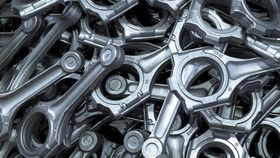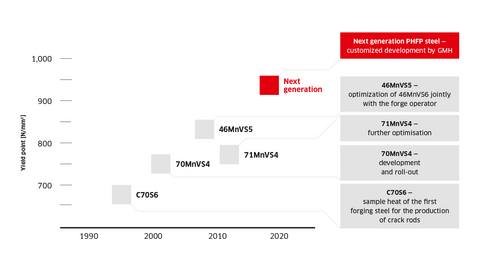Boosting the strength of PHFP steels
Boosting the strength of PHFP steels
Next-generation con-rod steels
GMH Gruppe has long been the reliable partner of the automotive industry. Our con-rod steels, for example, are noted for their high mechanical strength and excellent crackability. Despite these high achievements, our development teams saw no reason to rest on their laurels: a new generation of even further enhanced steels is already available.



